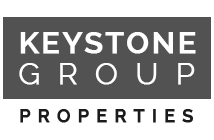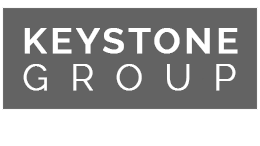Facing Foreclosure?

For information about distinguished Southern California luxury real estate in Los Angeles County, as well as coastal Orange County homes and San Diego homes, call Bob Cumming of Keystone Group Properties at 310-496-8122. Keystone Group Properties serves discriminating buyers and sellers of exclusive California real estate.
Facing Foreclosure?
The number of foreclosures in California and across the nation is on the rise. It is possible we can help. The law firms our organization works with have extensive experience in helping homeowners as do the attorneys’ that form part of the team. There have been numerous scams from firms and individuals claiming they can help the homeowner. BEWARE! It is highly recommended the homeowner interview a number of firms and individuals before making a decision. You may contact our organization for a free consultation. Homeowners have some potential options which are discussed below:
Mortgage Modification:
The Mortgage Modification program allows most homeowners who can make payments keep their homes. By actively counseling the clients and aggressively negotiating with their lenders one is capable of modifying the original loan to give the client a fresh start in managing their home finances. Depending upon the individual needs of each client, modifications can range from a simple interest rate reduction resulting in a lower monthly payment to what is known as a “recapitalization agreement.” A recapitalization agreement takes all the “arrears” or monthly amounts that should have been paid but wasn’t paid, interest, fees, and missed payments and adds it to the principal of the mortgage loan. The life of the loan can also be extended to lower the monthly payments. In some instances, the complete removal of the principal above the current fair market value and “arrears” is removed.
Lien Stripping:
The lien stripping program is available for individuals desiring to reorganize their debt using Federal Laws under Title 11 of the United States Code. The mortgage removal program can only be used in the context of a reorganization, often referred to as Chapter 13 (see below). If you own a home with more than one mortgage, you may be able to completely remove or “avoid” the second and subsequent junior mortgages from your home and county records, thus leaving only the first original mortgage! If you qualify, all mortgages except the first would no longer be secured by your home, and you would stop all payments except the first immediately.
There is nothing the creditor can do, provided you qualify for a simple three part test:
- The First Mortgage is equal to or higher than the fair market value of the home,
- You have income, and 3) Your total unsecured debt is under 336,900 and your secured debt is under 1,010,650. Unsecured debt is an item like credit card debt; secured debt is money owned on a vehicle secured by the vehicle or a mortgage secured by the property.
This ruling pretty much allows junior lien (seconds and thirds, etc.) removal on most properties bought or refinanced since 2004 due to the decline in real estate values.
Chapter 13 Reorganization:
The Chapter 13 “Reorganization,” allows one to consolidate all debts into one low monthly payment. The payment amount is tailored to one’s budget. Chapter 13 is technically a Bankruptcy, but viewed at differently since it is not a “straight bankruptcy” which simply eliminates all debt without any payment whatsoever. Instead, it consolidates all missed mortgage payments or “arrears” and then spreads the repayment out over 3-5 years.
It may also be possible to have junior liens or second and third mortgages along with other debt like credit cards be reduced as part of this process.
The net result may be a substantial reduction in monthly payments so one can keep his or her property. The Chapter 13 program results in a more realistic repayment plan than the short term plans currently offered by most lenders outside of the laws under Title 11, and you maintain all your rights under TILA, RESPA, HOEPA, FDCPA, FCRA, etc.
Short Sale:
A “Short Sales Program” markets and sells the property for at or below market value even though the property owner may owe substantially more than that on the mortgage(s). A short sale will not only stop the foreclosure but will prevent the adverse credit implications associated with a foreclosure.
Recent laws have gone into effect at the Federal and California State governments wherein the banks and finance companies are not allowed to come after the homeowner for any deficiency in monies owed.
Credit of the homeowner is normally not impaired about seven to ten years with a bankruptcy filing. It usually takes around two years.
It’s not uncommon to remain many months longer and in some more than a year in a property without paying using a short sale or a short sale combined with a bankruptcy.
Equity Recoupment:
The Equity Recoupment program allows homeowners to recoup what they may have lost as a result of predatory lending and the current mortgage crisis. Some homeowners have been able to stay in their homes anywhere from six months to years without making a single payment. Most homeowners are not aware of the many federal and state laws to address the very issues all of us are facing today with widespread foreclosures and predatory lending.
Deed In Lieu of Foreclosure:
A deed in lieu of foreclosure may be an option to prevent a foreclosure from hurting your credit if you are behind on your monthly mortgage payments and are unable to sell your home at the current market value. The process involves giving the property directly back to the lender, or “deeding it back in lieu of foreclosure.” The lender benefits as they are able to mitigate the additional losses they would incur from having to proceed with a lengthy foreclosure.
It is not always a simple process. Team members of our organization are willing to provide a free consultation. There are issues each homeowner should be aware of such as: to
- Get the homeowner released from most or all of the personal indebtedness associated with the defaulted loan
- Prevent the homeowner from experiencing the public notoriety of a foreclosure and subsequent credit implications, and
- Put money in our client’s pocket via “Cash for Keys”.
Summary
The homeowner has a number of options to consider. We hope this article is helpful.



